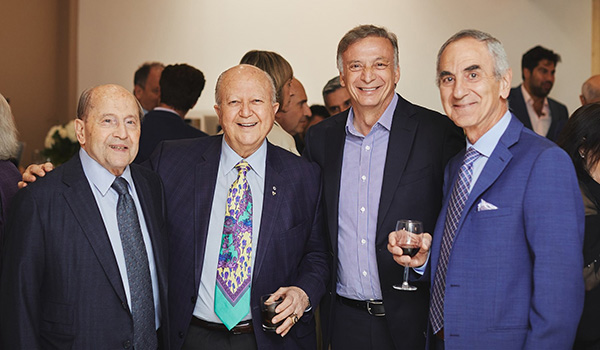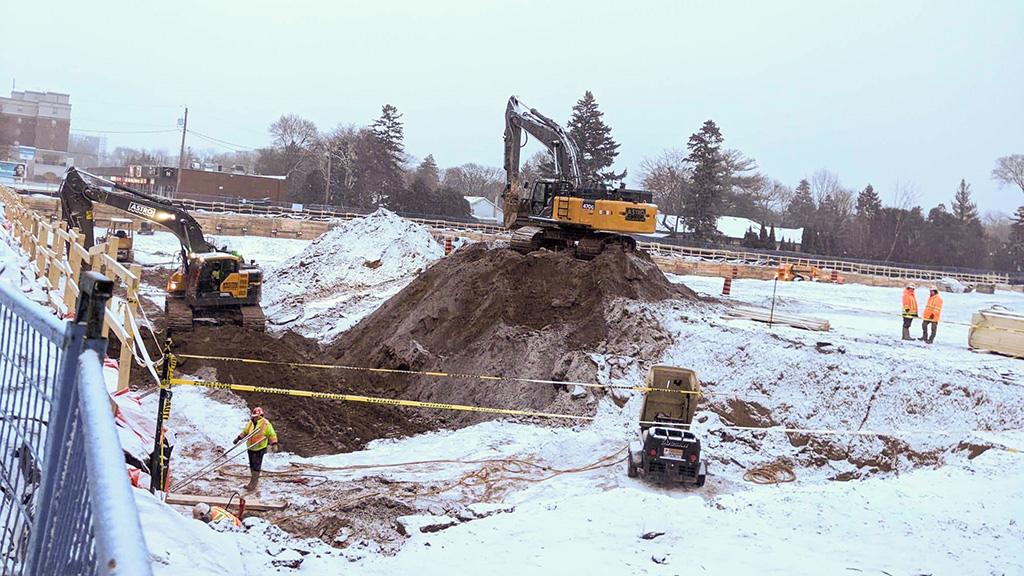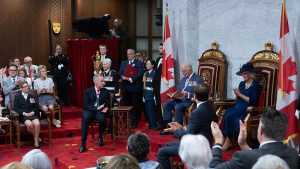New Canadian Senator Toni Varone of Toronto, a homebuilder and developer with thousands of homes in his portfolio as founder of the Varone Group, has but one mission as he prepares to get to work in the Senate.
“I’m all about housing,” said Varone, one of three new senators announced by Prime Minister Justin Trudeau in December.
“When you’ve got the policy wonks who say it needs to be done this way, there’s nobody contesting it…So wearing the shoes of a builder/developer, I will be right at the table where the policies are being designed.”
Varone, 65, was raised in Downsview, in northeast Toronto, the son of immigrants from a region south of Rome that has sent numerous homebuilders to Canada.
He went to work for his father’s construction company soon after graduating from York University and later launched the Varone Group, which oversees companies specializing in services for construction, land development, property management and hospitality.
Varone’s charitable credits are extensive. For over 30 years he has been heavily involved in Villa Charities, where he has received awards for his work in building affordable housing and his commitment to the Italian-Canadian community.
He is a former chairman of the board of the Columbus Centre and director of the Northwestern General Hospital and the Mount Sinai Hospital Foundation.
In recent years Varone served as a director of Canada Lands, the Crown corporation responsible for managing property on behalf of the federal government, and in that capacity he recently wrote a paper on how the federal government could use surplus lands for housing.
It was an eye opener for the federal government, Varone said, given its desperation to deliver housing amidst the worsening crisis.

“That kind of spun out of control and started to get traction amongst the political elements in Ottawa,” he recounted. “They took some stuff right off the report that I had written and embedded it into their budgets and key proposals.”
Nominations for the Senate come from the Independent Advisory Board for Senate Appointments, which provides recommendations to the prime minister.
The committee figured, “‘We need that kind of intelligence at the Senate,’ and that’s where it kind of began,” said Varone.
Varone’s appointment to the Senate was hailed by the Italian-Canadian community. The Consul General of Italy in Toronto, Luca Zelioli, told the Italian-language publication Corriere Canadese, “Knowing Toni Varone, his success as an entrepreneur and above all his great commitment to social issues, I believe that his appointment as senator is good news for Canada and a new element of pride for the Italian-Canadian community in this country.”
The reaction was “extraordinary,” said Varone.
The new senator said he’s eager to immerse himself in policy. He accepts that the government has good intentions but government policy is a “labyrinth” with “gaps” in understanding why developers hesitate to building affordable housing.
There are multiple reasons that contribute to failures, he outlined, from rent review boards that are “kangaroo courts” and double-digit increases in water costs to poor forecasts for rental streams, disincentives for renters to keep utility costs low and taxes from many sources that erode profits.
“What I will try and do from the Senate perspective is make a conscious effort to remove the barriers and allow the free market to be benevolent,” said Varone. “At the end of the day, it just can’t be Toronto Community Housing creating all the houses. That’s the wrong way. They’ll never achieve it in any way, shape or form.
“The building development community has got the capacity to do it. Why aren’t they being engaged? Why are they staying away? These are legitimate questions to be asked.”
“Attainable housing” is a new buzzword, Varone said, but there is no policy that defines what it means. What’s needed is a new rulebook, a common language, for everyone to follow.
The redefinition can start with low-rise, Varone said, because that is the most immediate and impactful modality.
“We can’t get the three and four levels of government on side to create that definition of what it really means,” he said.
“Low-rise builders, they have that capacity. They can deliver, just give them the rulebook which they need to deliver. And then we’ll perform.
“It can be done. We’re just not speaking the same language.”
Follow the author on X/Twitter @DonWall_DCN.











Recent Comments
comments for this post are closed